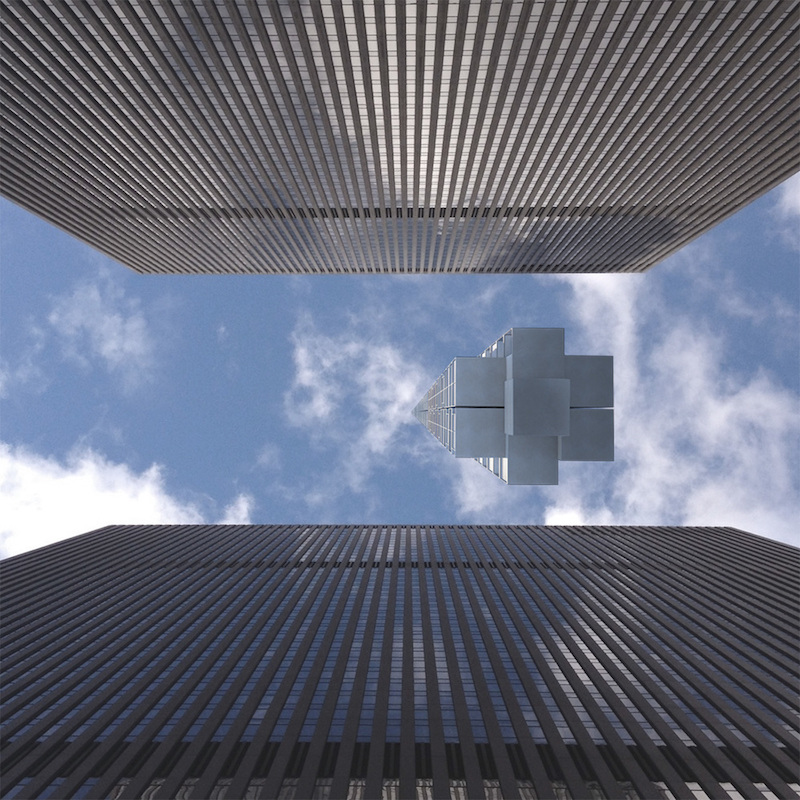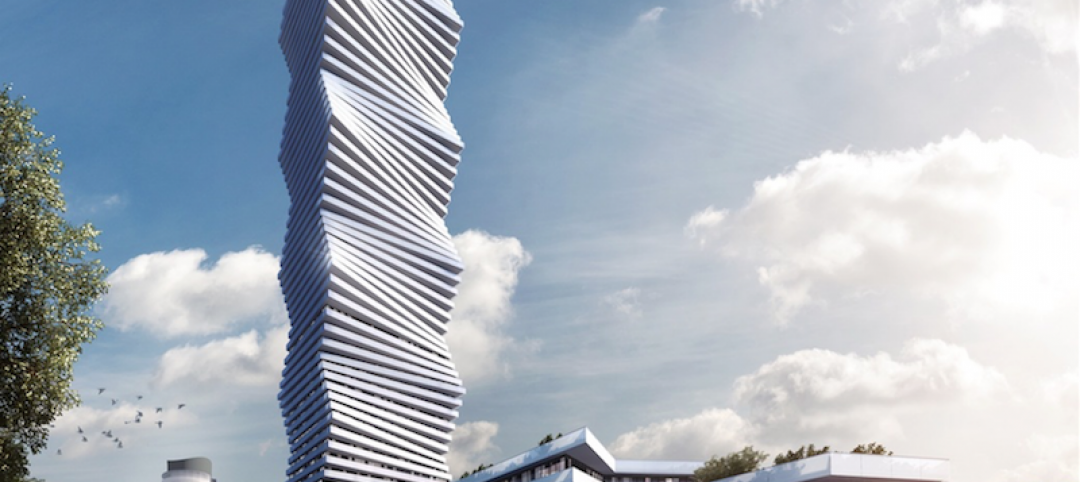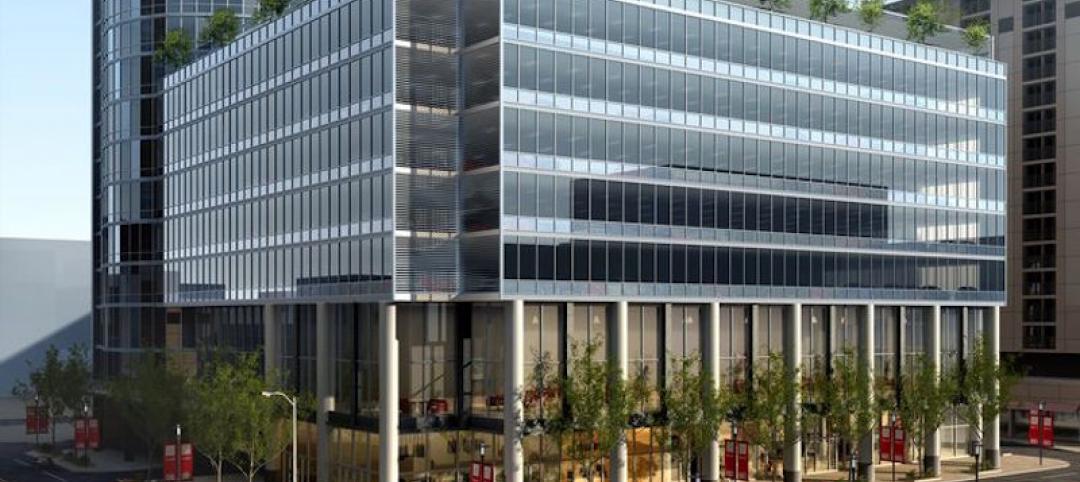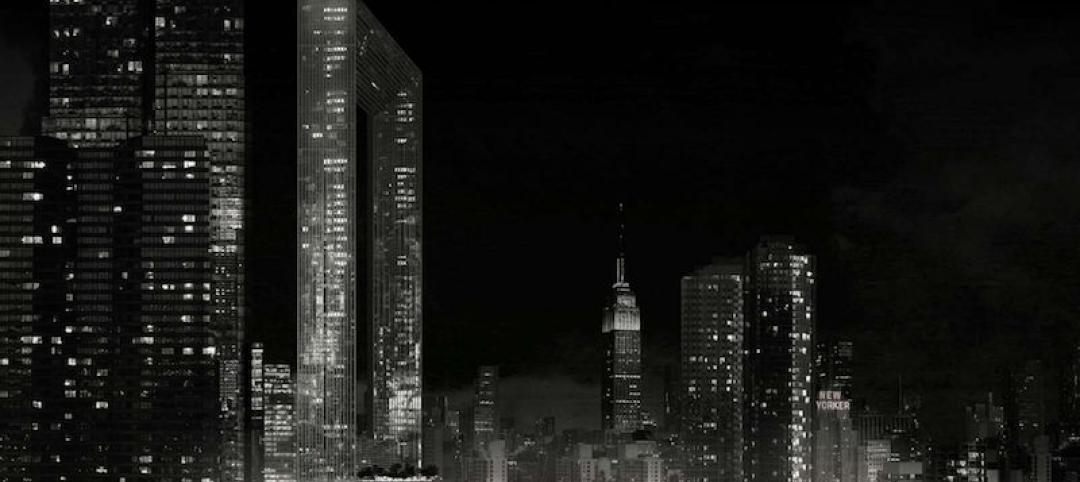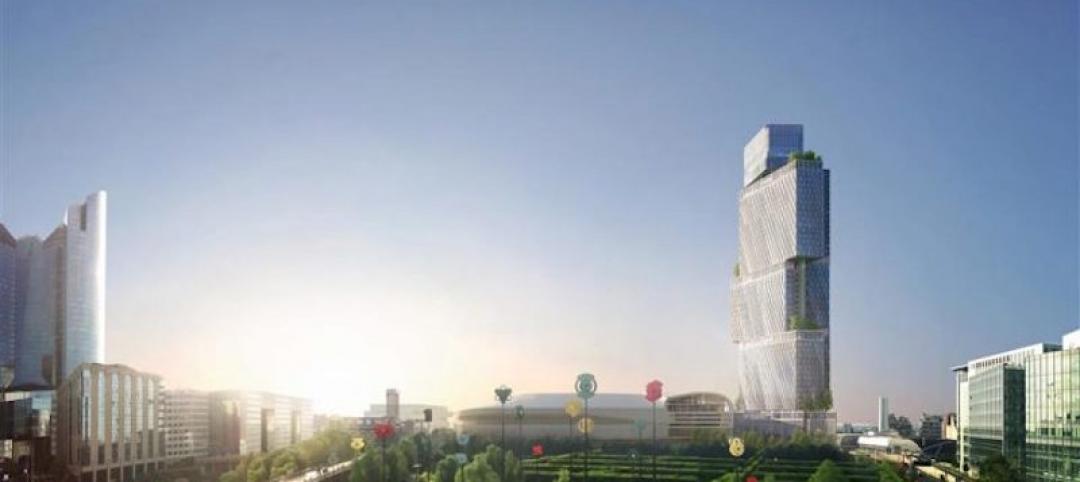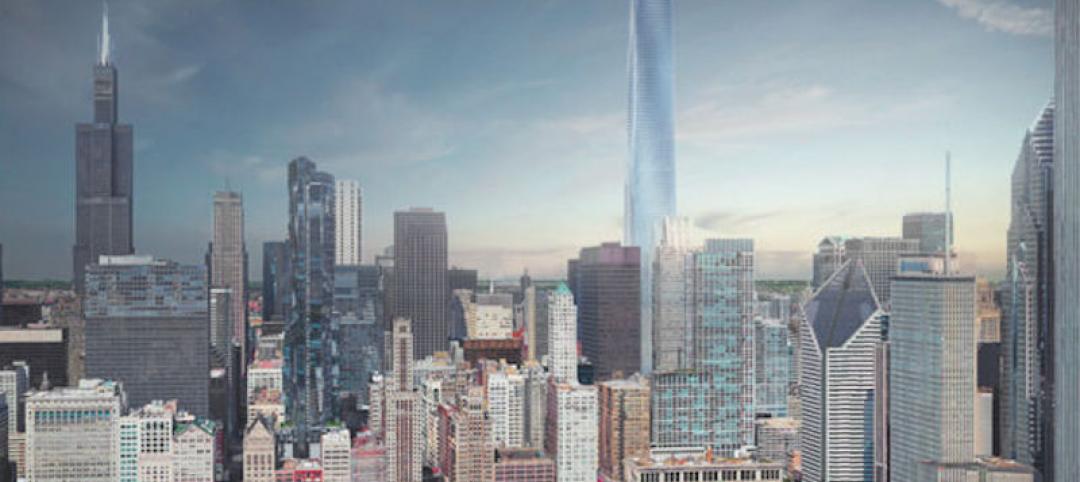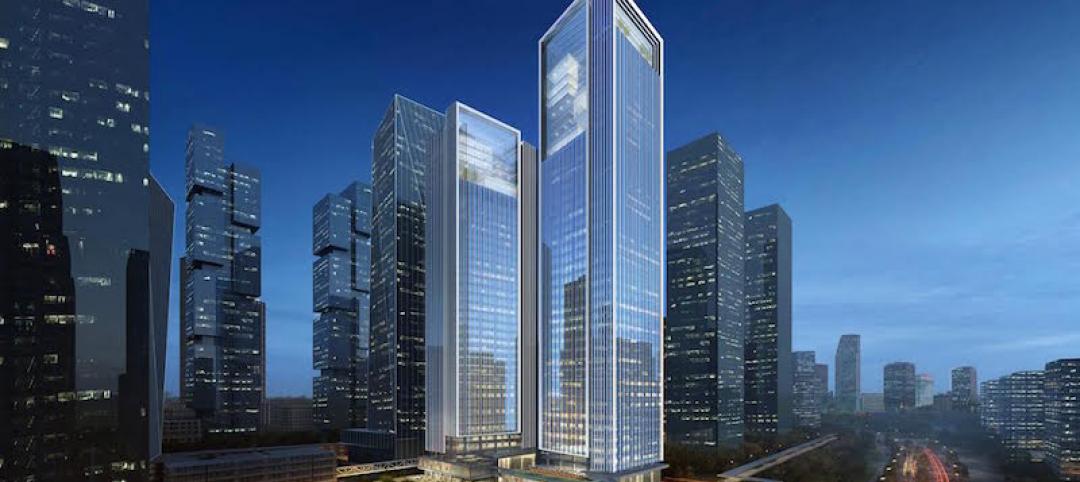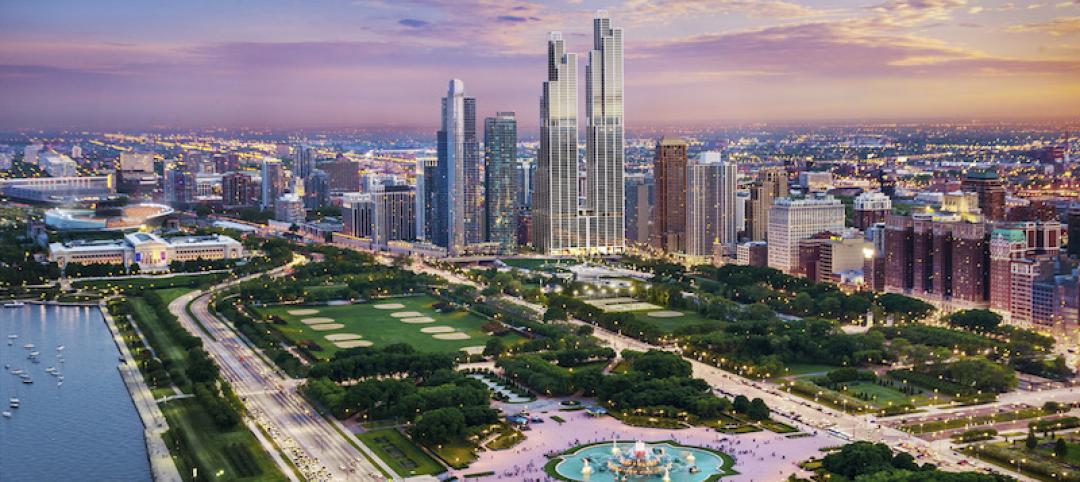Clouds Architecture Office is a New York-based firm known for their speculative designs and innovative (and often times seemingly unfeasible) approaches to architecture.
Among their inventive portfolio is a proposal for Martian architecture with the Mars Ice Home, a series of self-sufficient machine-like dwellings the drift among the clouds known as Cloud Skippers, and a concept for disaster relief that allows people to float above their ruined buildings or neighborhoods while they are being repaired called Cloud City. The firm’s most recent proposal, however, may also be its most radical.
The idea is to create a supertall skyscraper that, instead of springing from the Earth and climbing towards the sky, is suspended from an orbiting asteroid and hangs towards the ground like a giant stalactite (does that make it an earthscraper?).
Here is how the speculative tower, dubbed Analemma Tower (named after the figure-8 path the sun makes in the sky when viewed at the same time of day throughout the year), would work: A large asteroid would be placed into orbit over earth. From this asteroid, a high strength cable would be lowered towards the surface of the planet from which the supertall tower can be suspended. Since it is suspended in air, the tower can be constructed anywhere and transported to the final location. For this proposal, the tower would be constructed over Dubai since the city has proven to be a specialist in tall building construction while keeping costs at one-fifth those associated New York City construction.
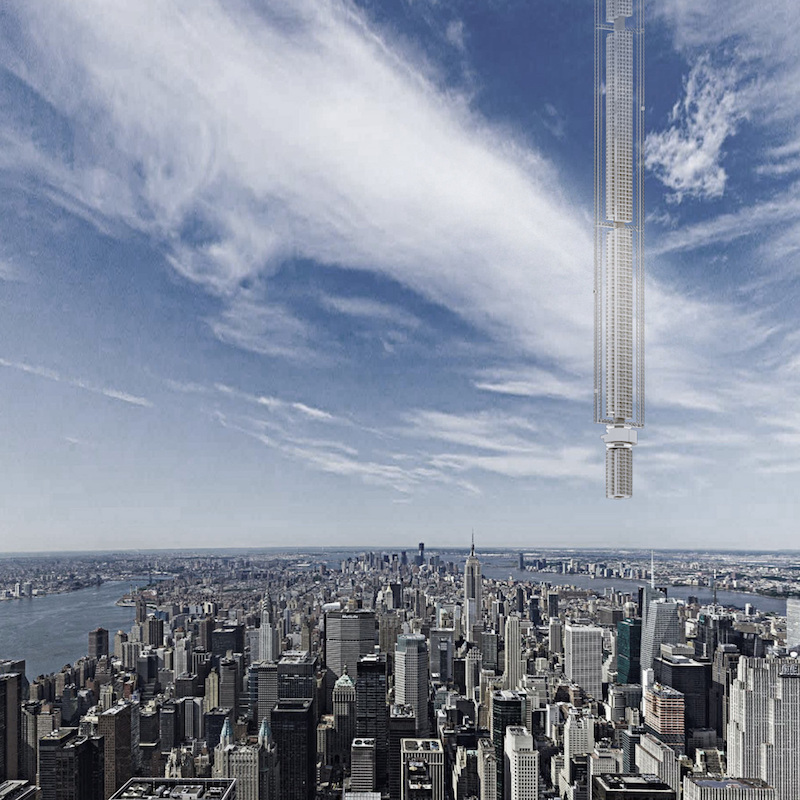 Rendering courtesy of Clouds Architecture.
Rendering courtesy of Clouds Architecture.
The asteroid’s geosynchronous orbit would match earth’s sidereal rotation period of one day. The tower would trace a figure-8 shape and return to the same position in the sky each day. The building would travel between the northern and southern hemispheres on a daily loop. At the bottom of the figure-8 pattern, the tower would move at its slowest speed to allow for the possibility of the towers residents to interface with the planet’s surface. The slowest part of the trajectory would occur over New York City.
If you’re thinking all of this sounds like science-fiction hokum, Clouds Architecture has a response, “Manipulating asteroids is no longer relegated to science fiction. In 2015 the European Space Agency sparked a new round of investment in asteroid mining concerns by proving with its Rosetta mission that it's possible to rendezvous and land on a spinning comet,” the firm writes on its website. “NASA has scheduled an asteroid retrieval mission for 2021 which aims to prove the feasibility of capturing and relocating an asteroid.”
The tower itself would be sectioned into several components. The office, business, and commercial components would be closest to the bottom, followed by garden and agricultural areas, and then a large section for residential. The top of the tower would be devoted to devotional activities. As one ventures higher into the building, the size and shape of the windows changes to account for pressure and temperature differentials. Due to the curvature of the earth, the very top of the tower would get an additional 40 minutes of sunlight each day but due to the near vacuum and -40C temperatures outside would prevent people from going outside and would make living on this level difficult.
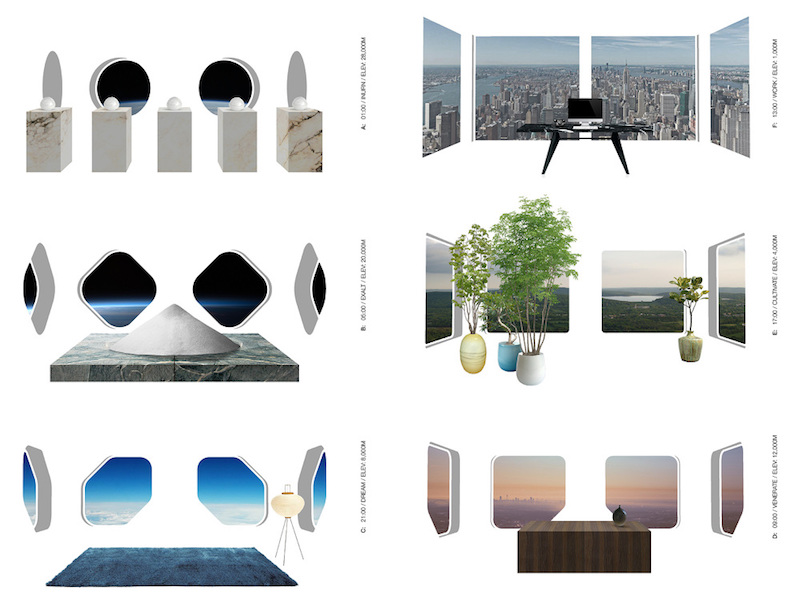 Rendering courtesy of Clouds Architecture.
Rendering courtesy of Clouds Architecture.
Analemma Tower would be powered by space-based solar panels that would receive constant sunlight. Water would be filtered and recycled in a semi-closed loop system and would be replenished by condensate and rainwater from clouds. The elevator system would use cable-less electromagnetic elevators as a workaround to height restrictions imposed by elevator cable spool volume.
Of the tower, Clouds Architecture says, “Analemma Tower is a proposal for the world's tallest building ever. Harnessing the power of planetary design thinking, it taps into the desire for extreme height, seclusion, and constant mobility. If the recent boom in residential towers proves that sales price per square foot rises with floor elevation, then Analemma Tower will command record prices, justifying its high cost of construction.”
Obviously, neither this tower nor anything like it is going to be built anytime soon, so what’s the point? Well, it’s an exercise in imagination and creativity meant to get the metaphorical juices flowing. Every innovative product or service that comes out and changes the world is an amalgamation of speculative ideas, failed projects, and new ideas that stemmed from a simple what if? thought. This is one of those what if? thoughts.
Plus, it’s just pretty damn cool, zany science and all.

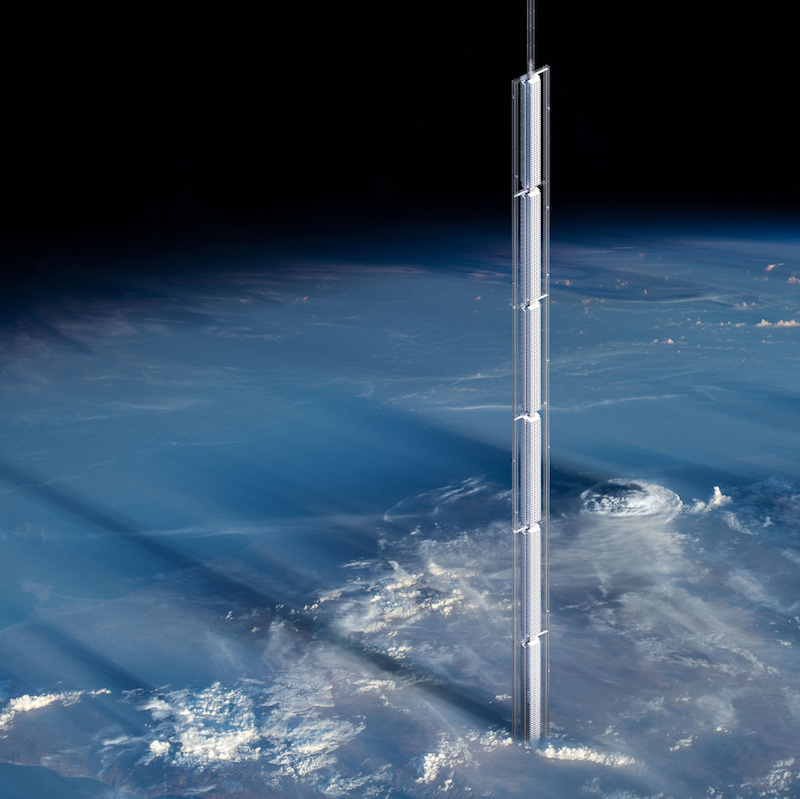 Rendering courtesy of Clouds Architecture.
Rendering courtesy of Clouds Architecture.
 Rendering courtesy of Clouds Architecture.
Rendering courtesy of Clouds Architecture.
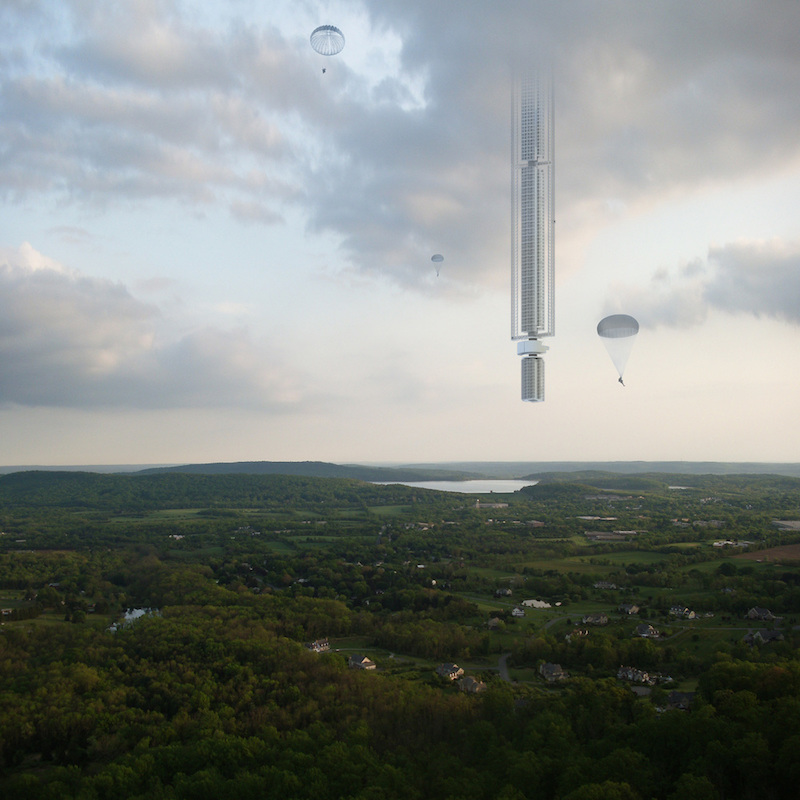 Rendering courtesy of Clouds Architecture.
Rendering courtesy of Clouds Architecture.
Related Stories
Reconstruction & Renovation | Feb 2, 2017
$500 million investment will modernize Chicago’s Willis Tower *Updated*
The project will be the first major renovation in the building’s 43-year history.
High-rise Construction | Feb 1, 2017
Rippled tower from CORE will be first of 10-tower master plan in Mississauga, Ont.
The tower will become the tallest building in what is Canada’s 6th largest city.
High-rise Construction | Jan 31, 2017
Chicago’s West Loop to receive 500-foot apartment tower
The 44-story tower will provide 492 rental units and a retail podium.
High-rise Construction | Jan 27, 2017
Silverstein Properties waffles on what to do with Far West Side property
The company has gone from a two-tower design, to a supertall, and now, supposedly, back to a two-tower design.
High-rise Construction | Jan 26, 2017
Paris tower provides office space and three hotel complexes across its three superimposed volumes
Equipped with hanging gardens and a panoramic viewpoint for its top tier, Jardins de l’Arche Tower will rise in Paris’s La défense business district.
Architects | Jan 24, 2017
Politicians use architectural renderings in bid to sell Chicago’s Thompson Center
The renderings are meant to show the potential of the site located in the heart of the Chicago Loop.
High-rise Construction | Jan 23, 2017
Growth spurt: A record-breaking 128 buildings of 200 meters or taller were completed in 2016
This marks the third consecutive record-breaking year for building completions over 200 meters.
High-rise Construction | Jan 20, 2017
CTBUH’s tall building predictions for 2017
Woodscrapers, the automobile industry's expansion into the tall building development business, and Nairobi's climb toward becoming Africa's skyscraper hub are just a few of the topics CTBUH's 2017 tall building predictions report focuses on.
High-rise Construction | Jan 19, 2017
Goettsch Partners to design Shenzhen-based headquarters complex
The Chicago architecture firm won a design competition for the project anticipated to be completed in 2019.
High-rise Construction | Jan 6, 2017
76-Story luxury apartment tower in Chicago’s South Loop gets name and begins construction
The building was designed by Rafael Viñoly and is scheduled for completion in 2019.


